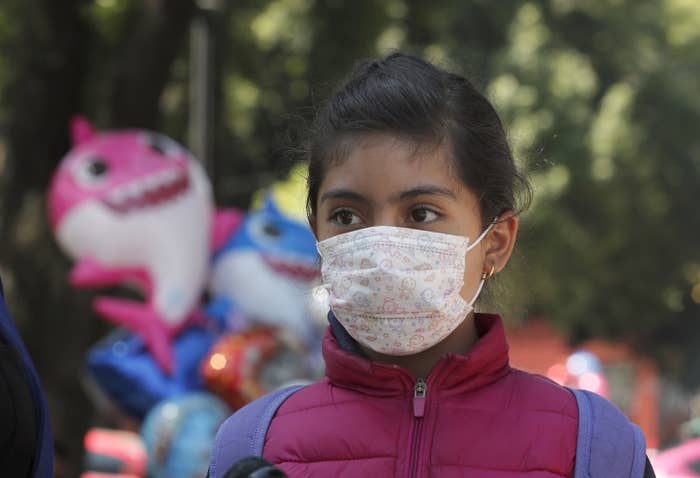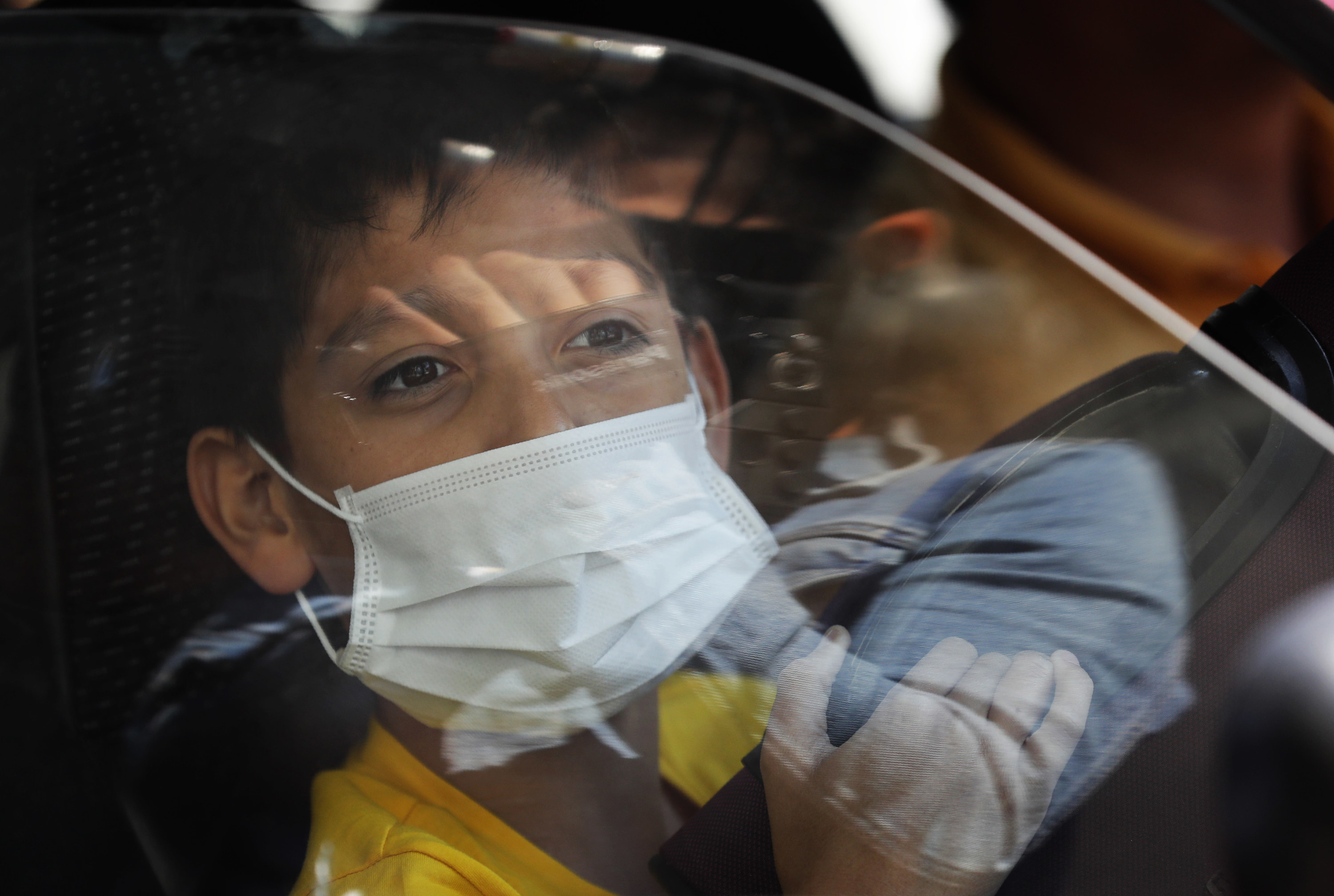
Anyone with an underlying respiratory condition, such as asthma, could be at risk if they become infected with the novel coronavirus, but doctors say there is some possible good news for parents worried about their children with asthma.
Although there is still a lot more to learn about COVID-19 and about how it affects children, the data so far suggests that children have been infected in much smaller numbers than adults, and few of the children who have tested positive for the virus have shown severe symptoms.
Still, doctors warn that anyone with underlying respiratory issues could experience severe symptoms if infected with the coronavirus, so parents should still stay vigilant and take the same kind of precautions they would to protect their kids from the flu.
"Unlike the H1N1 outbreak that significantly impacted children, that's not been the case so far with the current virus," Dr. Steve Krug, a pediatric emergency expert with the American Academy of Pediatrics and former chair of the National Biodefense Science Board, told BuzzFeed News. "But there are children who have been hospitalized and children can of course get sick."
Medical officials preface this with the fact that there is still a lot to learn about COVID-19, and even more to learn about its impact on specific populations like young children.
Dr. Greg Poland, professor of infectious diseases and director of the Mayo Clinic Vaccine Research Group, likened the information on the novel coronavirus to a pixelated photo downloading in a browser.
"We're in that 50% pixelation phase right now," he told BuzzFeed News. "We don't have enough of the pixels to get all the answers."
What is known so far, Poland pointed out, is that children seem to be at a lower risk of developing serious symptoms from the virus.
Of the first 72,000 cases that were reported in China, for example, the death rate for anyone under 39 years old was 0.2%.
Although with many infectious diseases children are considered an at-risk population, the data so far shows that children have, for an unknown reason, not been hit hard by the virus so far.

There are still many unknowns when it comes to the virus itself, and specifically how it impacts children, including rate of infection, what role children have played in spreading the virus, and whether they are more susceptible.
However, a recent study by the World Health Organization found people 18 years of age or younger comprised only 2.4% of all known coronavirus cases.
Children were also seen to be experiencing milder symptoms than adults, and only a small percentage of children infected — 2.5% — experienced severe symptoms.
The CDC concurs, noting that kids who have been infected "have generally presented with mild symptoms, and though severe complications (acute respiratory distress syndrome, septic shock) have been reported, they appear to be uncommon."
And although some children have not shown symptoms, Krug pointed out that researchers are still looking at the possibility that children could be infected with the virus and helping it spread, despite not being physically impacted by it.
According to the WHO, the highest-risk population remains people who are over 60, especially those who have hypertension, diabetes, cardiovascular disease, chronic respiratory diseases, or cancer.
Children with health conditions, the agency noted, could also be at higher risk of severe infection.
"Asthma is definitely a risk factor," Poland said. "The most immediate thing they [parents] can do tomorrow is to make sure that child and everyone else in the family has flu vaccines."
That's because with the chance of COVID-19 spreading across the US, ruling out the possibility of another kind of infection — like influenza — could certainly help keep parents' minds at ease.
"At least by getting the flu shot you reduce the number of people who are going to be getting anxiety over it," he said.
Parents of children with asthma would, hopefully, already be taking precautions to protect their children from contracting the flu, which could also have serious impacts on a child with asthma.
"In the case of the coronavirus being a respiratory virus, it stands to reason that parents who have kids who have pulmonary diseases, including asthma, should adopt the same precautions they would hopefully be taking in the case of the flu," Poland said.
The tips offered by health officials are similar to those for the general public.
"You gotta teach kids that you never touch your face or eat until you wash your hands," Poland said.
Teaching kids to cover their mouths when coughing or sneezing is a reasonable step to take, he said. Social distancing, especially with children with underlying respiratory issues, should also be considered by parents.
"If you're in a city where there has been an outbreak, I probably wouldn't send my kids to school," Poland said. "If your kid is sick, don't send them to school. I know it's inconvenient."
Children who do get sick, he said, should stay home at least 24 to 48 hours after the fever is gone.
"This is transmitted the same way as influenza, the problem is nobody does it," he said. "Everyone thinks they know how to wash their hands. I've never seen a lay person wash their hands properly."
Parents should also make sure that they have adequate supplies of their children's asthma medication as well as a backup. But Krug pointed out there is no need to start hoarding inhalers.
"It's about sensible, day-to-day behaviors," he said. "Birthday parties are important, but probably not if it's going to get you sick."
